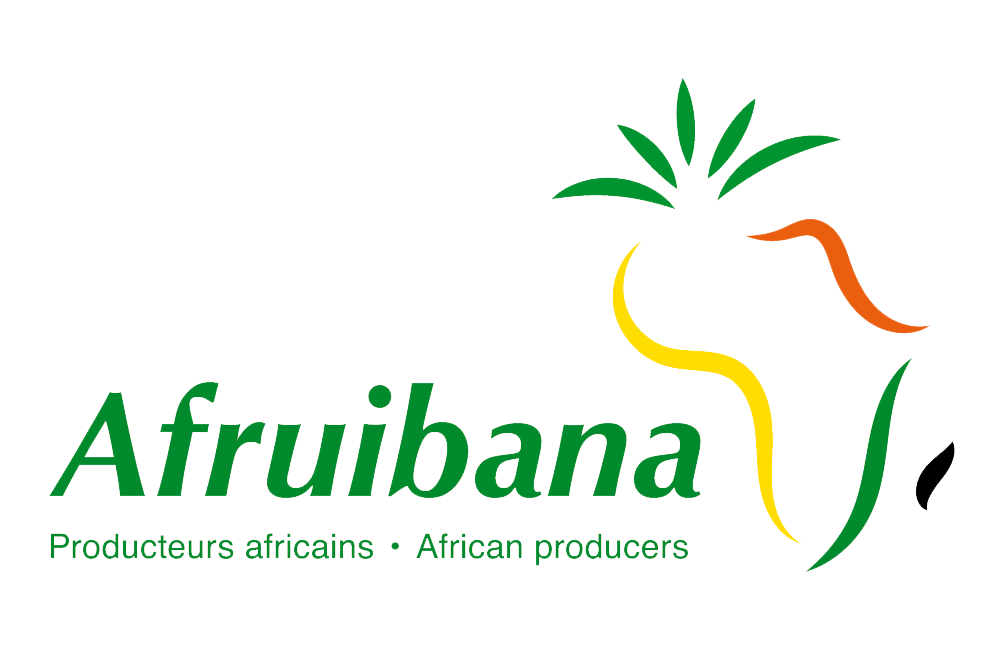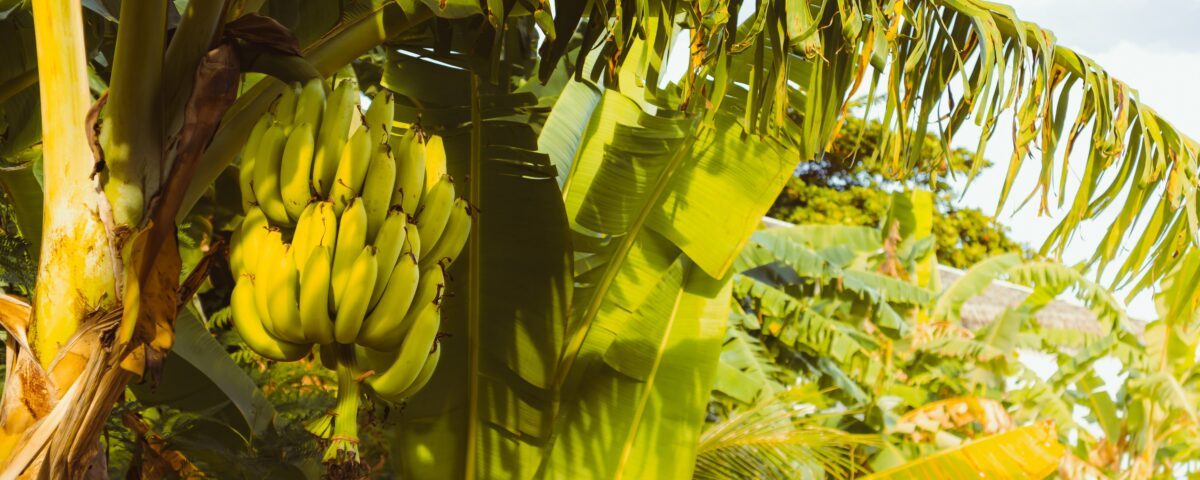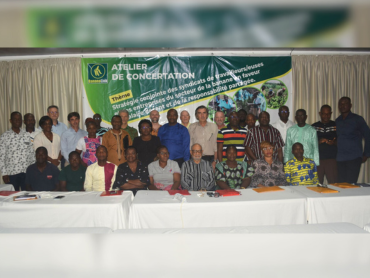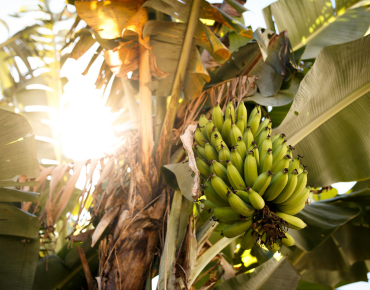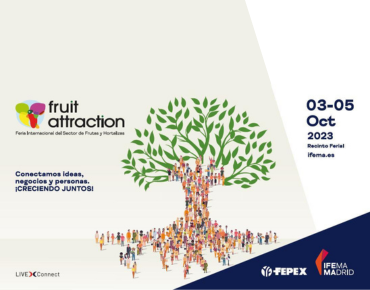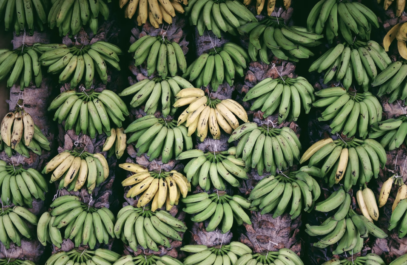
Afruibana relays the Global Coalition of Fresh Produce’s call for “urgent” action to secure the supply of fruits and vegetables.
8 February 2023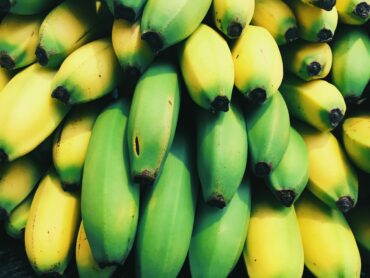
Afruibana welcomes the joint declaration by the governments of Germany, the Netherlands, Belgium and Luxembourg to intensify institutional dialogue on the concepts of « Living wage and income »
27 July 2023The members of the West African Parliamentary Group of the Bundestag, in collaboration with the German-Ivorian Friendship Group, undertook a study trip to Côte d’Ivoire last week.
The 3 challenges of the meeting
This trip was requested by Afruibana, a Pan-African Association for the Defense of Fruit Producers’ Interests. Upon their arrival in Ivorian territory, the parliamentarians visited cocoa and banana plantations in Tiassalé and held working sessions with their Ivorian counterparts. One of the final stages of their working sessions was the visit to the Fruit Terminal’s facilities, followed by exchanges with key players in the import-export of fruits on Thursday 29 June 2023, in the late afternoon. Several authorities were present, including representatives from the Ministries of Commerce and Transport. Diarrassouba Tahirou, Secretary-General of the Abidjan Port Community (CPA), and Jean-Marc Yacé, CEO of EOLIS, extended the traditional welcome to the German parliamentarians led by Dr. Karamba Diaby and the Afruibana delegation, led by Owona Kono Joseph. Mr. Yacé took the opportunity to present his organization, which possesses diverse expertise in Consignment, Transit, Logistics, Land Transport, Handling, and Dry Container Repairs, making it a strong player in the industry. Diarrassouba Tahirou, on behalf of the Director-General of the Autonomous Port of Abidjan, praised and supported the initiative. “The port community is following this matter with great interest,” he added. It is important to note that during this visit, three study themes were addressed: commercial challenges, social challenges, and environmental challenges.
1- Commercial challenges
Ivorian bananas, leading among fruit-producing countries in Africa, serve as a driving force for the country’s horticultural sectors. The banana industry is a significant job creator, providing over 13,000 direct jobs and generating nearly 25,000 indirect jobs. The agricultural sector supporting banana production also contributes to the development of essential infrastructure such as roads, schools, and healthcare centers. The Ivorian banana industry produces 400,000 tons of bananas annually, with 320,000 tons being exported to the EU. Consequently, the Ivorian banana sector plays a crucial role in the government’s vision under Patrick Achi’s leadership and the National Development Plan, aiming to revitalize the agricultural sector to actively contribute to the country’s growth and attractiveness. However, this sector faces asymmetrical competition from Latin American producers who export 15 million tons of bananas, including 4.6 million tons to the EU, which is 14 times the volume exported by Ivory Coast. This lopsided competition exerts constant and substantial downward pressure on prices. Ensuring conditions for fair competition is essential. In response to the dominance of Latin American exports, African producers have united within the Pan-African Association, Afruibana, over the past six years. In July 2023, Spain will assume the rotating presidency of the EU Council for six months. During this period, Spain will define the agenda and political priorities of the Union. This presidency emphasizes development with Latin American and Caribbean (LAC) countries and particularly puts the free-trade agreement with Mercosur countries on the agenda. The European Union aims to strengthen its partnership with Latin America and the Caribbean, as outlined in a declaration published in early June 2023. The proposal envisions a stronger and modernized strategic partnership through increased political engagement, boosting trade and investment, and building more sustainable, fair, and interconnected societies through investments within the “Global Gateway.” In this context, the visit of the German high representatives takes place. The visit aims to raise awareness about the necessity of not deepening exchanges with Latin America at the expense of those with Africa. Additionally, it provides an opportunity for the African banana sector to highlight its differentiation in terms of quality, social conditions, and environmental production practices.
2- Social challenges
From a social perspective, African producers stand out for actively promoting social dialogue. This is reflected in an inter-union dynamic that led to the establishment of the first National Association of Ivorian Banana Workers (FETBACI). The members of FETBACI’s executive board will participate in the entire day of the visit with the delegation and will have the opportunity to engage with the German authorities to share insights into the sector’s challenges. This peaceful union dialogue aligns with the overall approach of the African banana industry, which directly contributes to improving the living conditions of workers, their families, and local communities. One of the major and unquestionable commitments of African banana producers is a zero-tolerance policy towards child labor and forced labor, which unfortunately affect other banana-producing countries worldwide. African producers also have a positive impact on the places of operation by developing infrastructure to access basic services such as water, education, healthcare, housing, etc. They further contribute to the growth of the local economic fabric by stimulating and encouraging agri-entrepreneurship. Furthermore, initiatives are underway to promote gender parity within management structures. Similarly, producers are taking action to support women’s empowerment.
3- Environmental challenges
On the environmental front, African producers have been undertaking their agro-ecological transition for over a decade. They now aim to scale up this approach. In partnership with CIRAD, Afruibana is indeed developing a project for agro-ecological bananas in Côte d’Ivoire, Cameroon, and Ghana, with the triple ambition of improving the environmental performance of plantations, reducing production costs, and increasing yields. Discussions, under the auspices of the World Banana Forum, are currently underway around the concept of “shared responsibility.” This approach involves a framework where risks and value are equitably distributed along the supply chain, allowing farmers to share costs with buyers and be rewarded for their efforts in favor of more sustainable agricultural practices. This approach, coupled with the pursuit of “fair prices,” will enable sustainable realization and “decent wages.” Currently, the majority of risks weigh on the producers. In fact, large retailers use bananas as loss leaders to attract consumers to their stores, keeping 30 to 40% of the banana price. This situation is unsustainable during the transition period.
Strategic Role of the Fruit Terminal:
The Fruit Terminal, managed by EOLIS, a maritime agency and member of the Compagnie Fruitière Group, plays a crucial role in the import and export of food products between the EU and Africa. Handling over 500,000 tons of fruits annually and possessing expertise in cold chain management, the Fruit Terminal has suitable infrastructure and equipment to address the specific challenges related to perishable goods and the agri-food sector. Although Africa is geographically closer to the EU than Latin America, it will still face increased transportation costs due to the implementation of the European carbon tax on maritime transport starting from 2024. Hence, it is essential to enable this bridge between continents to navigate the ongoing regulatory changes and equip it with the means for future development.
Afruibana’s missions
Afruibana is a pan-African association of African fruit producers and exporters. Born from the regrouping of several communities of the fruit sector in Côte d’Ivoire, Cameroon and Ghana, it is the voice of African producers to international institutions. While the majority of the association’s members are currently banana producers, Afruibana is an open platform that aims to federate African fruit producers and defend their interests globally. To carry out this mission, the presidency of the association has been entrusted to Mr. Joseph Owona Kono. He works in close collaboration with Jean-Marie Kakou-Gervais, and Mr. Anthony Kofi Blay, Vice Presidents of Afruibana.
Interview
Jean-Marc Yacé, CEO of EOLIS
“I am the leading producer of organic bananas”.
We are hosting a delegation from the German parliament. This morning, we showed them the plantations, the planting process, harvesting, packaging, and the transportation to the fruit terminal. They came to observe the logistics involved in Côte d’Ivoire: loading onto the ship and the export process. I believe they have seen it all and are satisfied. Our interest is to enable these parliamentarians to increase the commercialization of African bananas. That means advocating and facilitating favorable taxes for the marketing of African bananas within the European Union. We express our gratitude to Afruibana for organizing this meeting with EOLIS and the SCB of the Compagnie Fruitière Group. I think this will boost banana and fruit sales in Europe. Bananas used to be produced only in the southern part of the country, but now we produce them in the north as well. We even have organic bananas, and I am the first producer in this regard. The banana industry is doing quite well, and we are the number one producer in the sub-region.
Owona Kono Joseph, president of Afruibana
“We are expecting strong support from Germany…”
We wanted to accompany the visit of the parliamentarians because, as you know, in Europe, there are heavyweight countries like Germany and France, both members of the European Union, which is our main market. If we have a major player like Germany for such an important market and if we have parliamentarians who come to see what is happening here, it was essential for us to dedicate this day for this meeting. By showing the parliamentarians what our fellow producers are capable of in the plantations and at the Fruit Terminal, we are hoping for strong support from Germany to obtain a fair and equitable price in the market, enabling us to continue our efforts in preserving the environment and promoting sustainable and responsible agriculture. Regarding our products, we have won the battle of quality. However, in the market, we are hindered by overproduction from certain regions, making us feel voiceless and without any control over prices. We rely on the support of the parliamentarians to achieve what I have termed fair and equitable prices.
Dr. Karamba Diaby, President of the Parliamentary Group of the Social Democratic Party (SPD), and head of the delegation
“We are reassured and very satisfied with what we have seen.”
We had the opportunity to witness the banana production process, from flowers to fruits, and the shipment to Europe. I believe that the people working in this sector should have salaries that allow them to live a decent life and, above all, work in the best conditions. The German parliament will contribute to improving these conditions. German cooperation is working to support the efforts being made in West Africa. We are aware that the competition with Latin America is very strong. We are reassured and very satisfied with what we have seen during these two days. The work being done here is highly professional. We commend these commitments and the institutions behind them, and we will continue to support them.
